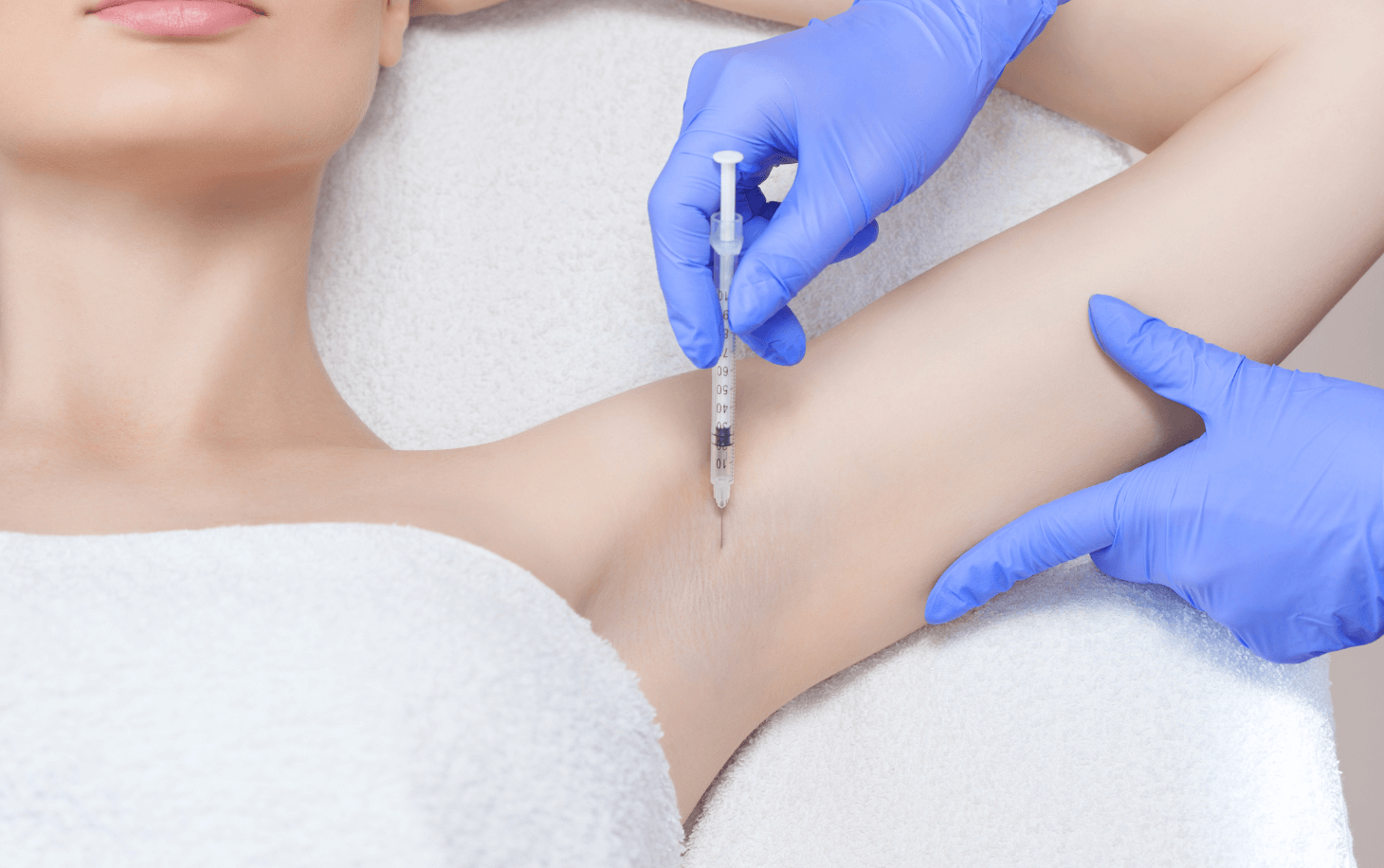Hyperhidrosis is a condition where the body sweats excessively – hence its other name, excessive sweating. The condition can cause sufferers embarrassment and loss of confidence, especially as it can be difficult to control. The good news is, treatment is available, and can help to manage the condition. Today, our expert team in Suffolk will explain what it is, who it affects (and where), and what treatment you could consider.
What causes hyperhidrosis?
Excessive sweating can be triggered by hormonal changes, such as puberty, pregnancy and menopause. However, it’s not just limited to women. The condition can come on suddenly, worsen over time, or may clear up completely on its own.
What does hyperhidrosis affect?
Because the condition is related to sweating, it can happen almost anywhere on the body. Generally, it affects areas like the groin; the armpits; the hands and feet; and the forehead.

Is hyperhidrosis serious?
No, but it can be debilitating. In some cases, it can affect the whole body. It can also have a negative impact on someone’s quality of life and has been known to contribute towards feelings of depression and anxiety.
When should I seek treatment?
If you’re finding that excessive sweating is affecting your day-to-day life, getting worse, or affecting you more at night (night sweats), it’s time to seek treatment. Diagnosis can be made through symptoms and/or blood or urine tests.
What happens during treatment?
Treatment involves carefully-placed injections of Botox into the affected areas. This typically feels like a ‘’sharp scratch’’. Botox works to weaken signals in the sweat glands, which are responsible for producing sweat. In this way, the amount that you sweat can be reduced. Treatment can be relatively quick to carry out, depending on which areas of the body are being treated and how many.
How long does treatment last?
Results from Botox typically last 3-4 months, with a top-up then required to maintain them. We can put together a treatment programme to help you keep track of this, and manage your hyperhidrosis in the long term.
What about alternatives to hyperhidrosis treatment?
There are definitely things you can try at home to manage your excessive sweating, whether it’s keeping note of which foods trigger sweating outbreaks, or reducing how much you wash (since this can have an adverse effect and cause you to sweat more). You might also need to shake up your wardrobe and introduce lighter clothing, or ‘breathable’ fabrics like linen.
How do I book hyperhidrosis treatment?
Simply contact Rebecca Taylor Aesthetics in Newmarket, Suffolk or book online and we’ll arrange your personalised consultation. We look forward to seeing you very soon!

